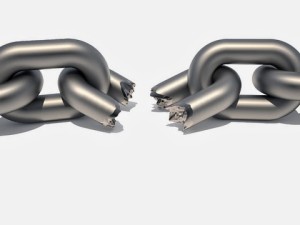Common Cause
Healing the Criminal Justice System
by Robert C. Koehler
“It’d be really hard to have a higher recidivism rate than we have in Cook County.â€Â Maybe this is the place to start a brief meditation on changing the world, or at least Chicago . . . known to some of its residents as “Chiraq.â€
 The speaker is Elena Quintana, executive director of the Adler Institute on Public Safety and Social Justice, which, in partnership with Roosevelt University’s Mansfield Institute for Social Justice and Transformation, recently completed a study on Cook County’s dysfunctional juvenile justice system.
The speaker is Elena Quintana, executive director of the Adler Institute on Public Safety and Social Justice, which, in partnership with Roosevelt University’s Mansfield Institute for Social Justice and Transformation, recently completed a study on Cook County’s dysfunctional juvenile justice system.
What we’re doing isn’t working, justice-wise, order-wise, sanity-wise. The state of Illinois is bankrupt and yet its jails are full to bursting, at a cost, per occupant, equal to or greater than the cost of luxury suites at its ritziest hotels. And 90 percent of the teenagers who enter the system come back within three years of their release. This is no surprise: The system is a spiral of entrapment, especially for young men of color.
Why? What’s the point of such a costly and ineffective system (if “effectiveness†is measured by bringing positive change rather than by simple self-perpetuation)? Bureaucratic punishment is not the answer to social disorder; instead, it’s a major contributor to the disorder, shattering families and communities and branding people for life as permanent wrongdoers — “ex-felons†— yet answerable only to its own rules and procedures. It has nothing to do with . . . what’s that word again? Oh yeah, healing. Deep in the hidden core of the American system of justice is a determination to dehumanize people, not rescue them.
The problem is that punishment, dehumanization and domination — us vs. them — are America’s default setting. We’re always righteously subduing bad guys, in our movies and in our politics. We’re always at war, both internally and externally, and waging it is barely subject to economic restraint. Those who question it do so as individuals; collectively, the system rolls on, no matter the cost to its victims — who, ultimately, are all of us.
So I was profoundly encouraged to hear about the completion of what is called the Juvenile Justice Needs Assessment Study, the “overarching recommendation†of which, according to the executive summary, is that the juvenile justice system “create a common goal of keeping youth in community.â€
When I talked with Elena Quintana, she put it a little more bluntly: “We have a moral mandate to keep kids in the community. The gestalt of (the current) system is not about reclaiming you. It’s about corralling you because you’re seen as unfit. And when you’re bounced back, you’ll be watched and rearrested.
“Your police officer has more incentive to catch you doing something wrong than to help you do something right.â€
Here’s where the meditation comes in. Calm yourself, inhale, think about the world we’re collectively creating every day. What if that world is self-destructing from its own momentum and inertia — from its commitment to militarized “security†at home and abroad?
Consider this fragment of insanity, one of the challenges the study identifies about the juvenile justice system, as noted in the executive summary: “Many at risk youth who need services were unable to receive them without entering the juvenile justice system.â€
In other words, kids that are in trouble won’t get help of any sort until they’re arrested. The cost to young people for extracting assistance from the state is to be branded for life as a felon and caught up permanently in the system.
“We have to deal with gangs, guns and drugs in a real way,†Quintana said. “Not by bringing in Robocop, but with preschool, with alternatives to incarceration. Instead of investing in humanizing people, we’re investing in dehumanizing people.â€
Noting that many, many young people have experienced “complex trauma†in their lives, and that so many of the institutions that serve them fail to address this, she said, “We systematically invest all our money in further depriving them. We’re colluding in child neglect, if not outright abuse, because we’re not investing in types of programs for troubled young people that allows them to flourish.â€
The amazing thing, she said, is that “there’s tremendous agreement about this†among juvenile justice personnel at all levels. “It’s not even controversial.â€
In other words, the current system isn’t working and most people who are part of it realize this, but they are not yet, to a significant degree, in community with one another about how to begin changing it.
The system won’t be reformed, as far as I can tell. It will only be rebuilt from its core: around the values of healing and prevention and regarding young people, as Quintana put it, as precious — not as predators. The Juvenile Justice Needs Assessment Study is, I believe, a significant contribution to this rebuilding effort and I will return to its findings in future columns. What it does is begin to solidify and create common cause around a healing-based criminal justice system.
“We heal in community,†Quintana said, “We don’t heal on an ice floe. We don’t heal in solitary confinement.â€
Robert C. Koehler is an award-winning Chicago-based journalist and nationally syndicated writer. His book Courage Grows Strong at the Wound (Xenos Press), is still available. Contact him at koehlercw(at)gmail.com or visit his website at commonwonders.com.
